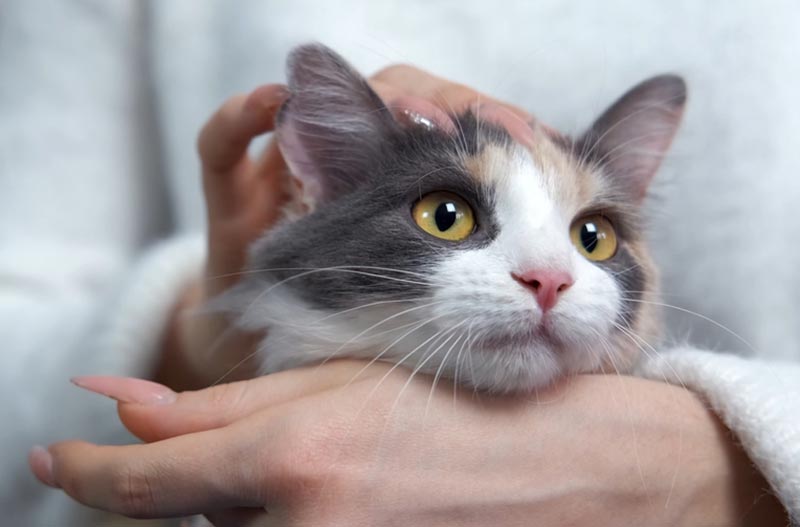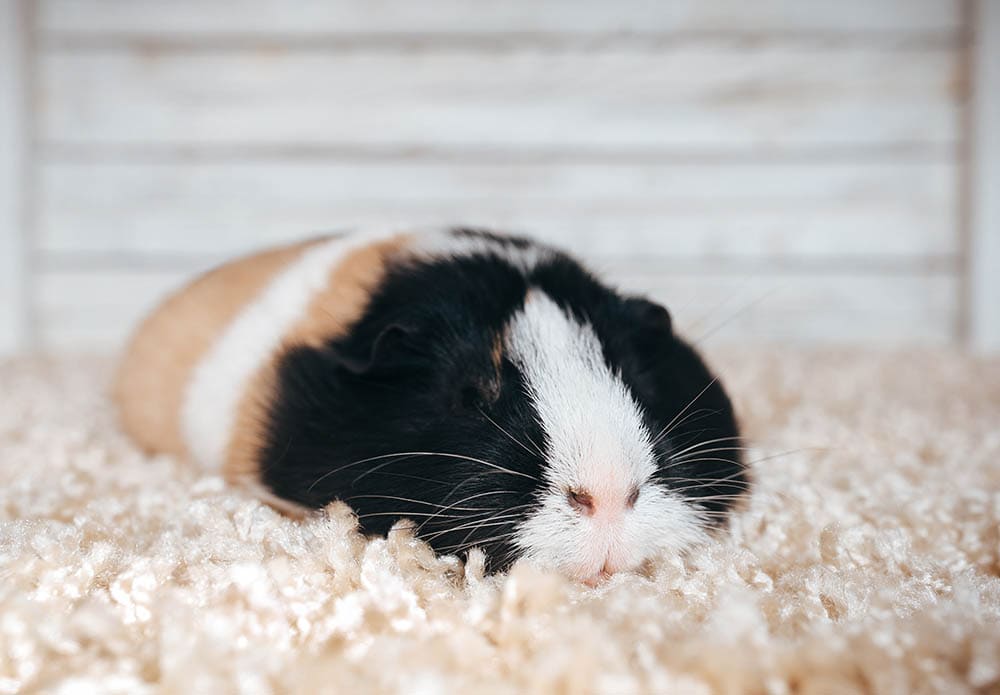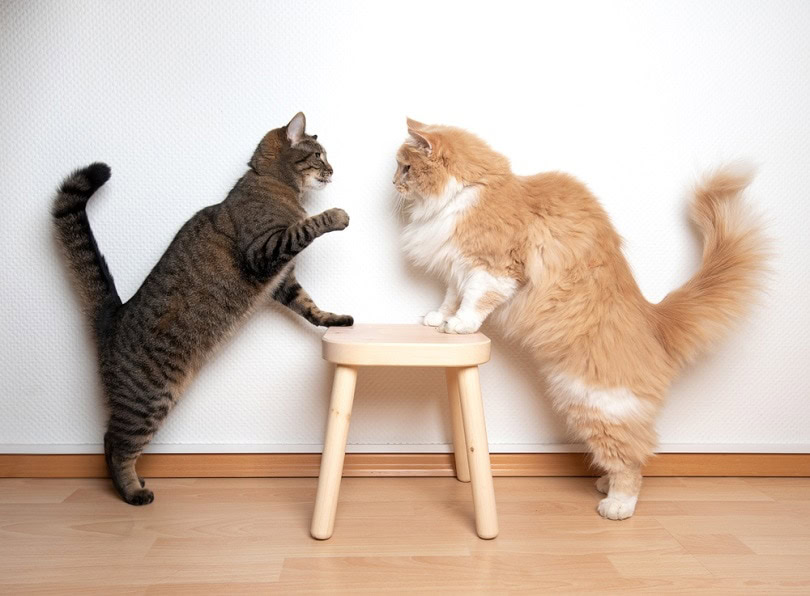VET APPROVED

The information is current and up-to-date in accordance with the latest veterinarian research.
Learn more »Listening to a cat purr can be incredibly soothing, but is there ever too much of a good thing in this situation? If your cat seems to purr all the time, you might wonder why and whether it’s normal. Cats purr for several reasons, and excessive purring isn’t always a sign of a happy cat.
In this article, we’ll tell you why your cat might be purring all the time and why it could be a cause for concern. We’ll also discuss what to do to determine if your cat’s constant purring is normal.

How Do Cats Purr?
The exact mechanism behind purring is still a topic of research, and scientists have yet to reach a definitive conclusion. However, the most widely accepted theory is that purring is produced by the rapid movement of the muscles in the larynx or voice box. These muscles open and close, causing vibrations as air passes through during both inhalation and exhalation. This explains why purring is a continuous sound, unlike a meow, which occurs only during exhalation.
Research suggests that the brain may send repetitive neural signals to these laryngeal muscles, triggering the purring response, but we have yet to discover precisely how this happens. In addition to domestic cats, some wild cat species, such as the lynx, puma, and ocelot, can also purr.


Why Do Cats Purr?
Purring, like meowing and other vocalizations, is primarily a way for cats to communicate their internal states. The most common interpretation of purring is happiness, but it is also produced in other situations that could be more concerning.
1. Cats Purr Because They’re Content
Happiness and contentment are the emotions that humans most commonly associate with a cat purring. And in many cases, this is accurate. If your cat purrs all the time, it could be because they are just a very relaxed and happy kitty.
Purring helps kittens bond with their mothers, and your happy cat may also purr to help form a connection with you. This type of purring is normal and shouldn’t be a cause for concern.
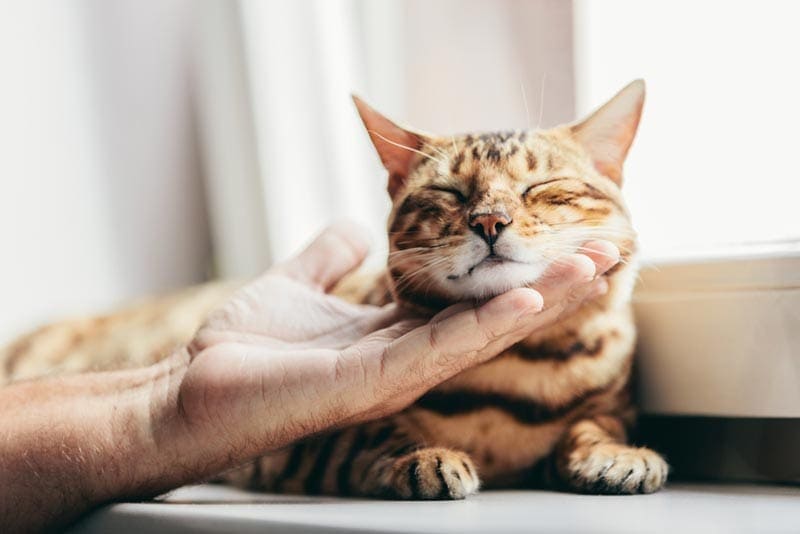
2. Cats Purr Because They Need Something from You
Cats don’t just purr when they’re content; they also use purring as a way to communicate their needs. When seeking attention, food, or comfort, cats may produce a distinct type of purr. Some studies suggest that this “solicitation purr” has a slightly different frequency, making it more noticeable to humans.
If your cat is purring more than usual, there’s a possibility that they’re trying to get your attention or signal that something is bothering them.
3. Cats Purr Because They’re Sick or in Pain
Research into the healing power of sound has determined that vibrations of a specific frequency are beneficial. Cats purr at frequencies shown to aid in healing conditions like muscle pain, broken bones, wounds, and swelling. In some circumstances, cats may purr to heal themselves.
If your cat is purring all the time, there’s a chance that they might be injured or sick. In many cases, you’ll probably notice other signs that your cat is unwell, such as weight loss, decreased appetite, or limping. However, because cats have the instinct to hide their weaknesses, it’s also possible that excessive purring could be the only sign that your cat is sick or hurting.
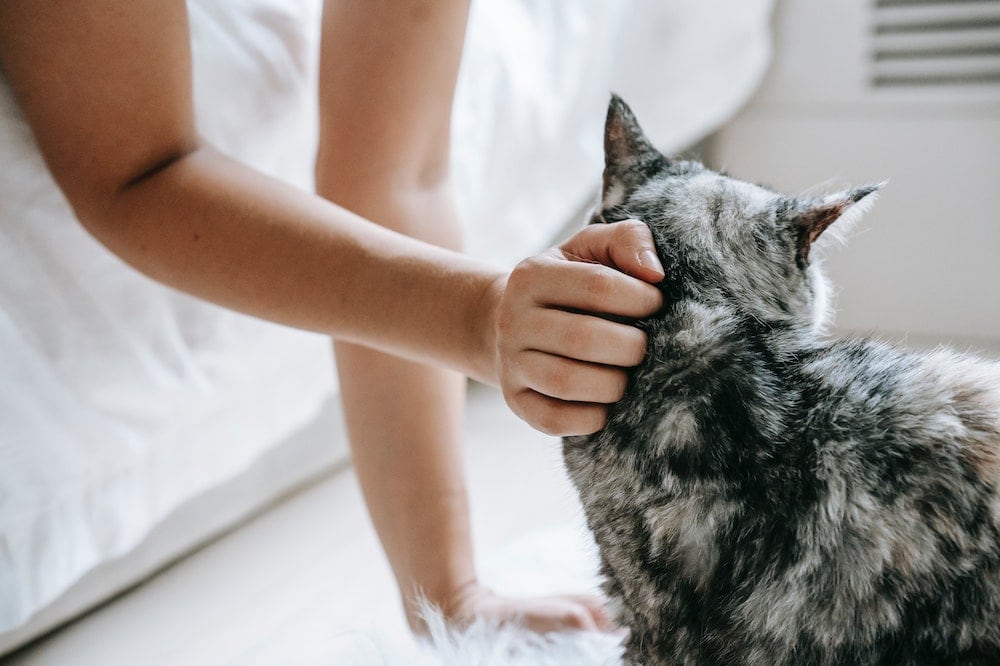

What to Do if Your Cat Is Purring All the Time

So, if your cat is purring all the time, what should you do? We’ve learned that this might be normal behavior but could indicate something is wrong with your pet.
The first step is to rule out any physical cause of your cat’s constant purring. Take your cat to the vet for a check-up and diagnostic tests. Your vet can ensure your cat isn’t suffering a breathing issue that sounds like constant purring, and they will rule out other illnesses or injuries.
If your cat gets a clean bill of health, it’s time to do some investigating of your own. Could something inside or outside your home be stressing your cat out? Depending on your cat’s personality, even something as simple as an out-of-town guest could make them anxious.
Other possible causes of stress include the addition of a new pet, home repairs or renovations, and a new stray kitty hanging around outside the house. If you think your cat is purring due to anxiety, make sure they have a safe space to retreat with their bed, toys, litter box, and food. Spend time with your cat, and consider using a cat pheromone diffuser. Anxiety medications could also be worth trying but consult your vet first.
If you rule out any physical or mental reasons for all the purring, it means your cat is probably just a really happy kitty. Relax and enjoy the sound because it means your cat feels content and safe.

Conclusion
Understanding your cat’s verbal and non-verbal communication can be complicated. It gets even more so when one sound you thought you could explain—the purr—turns out to be more than meets the eye. Don’t immediately assume your cat’s excessive purring is a reason to worry, but don’t instantly accept it as normal, either. Take the time to rule out any potential negative causes for the purring, so you and your cat can both relax.
Featured Image Credit: Gadzick, Shutterstock
